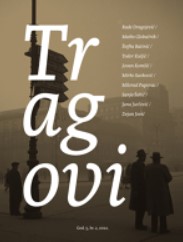Vernakulari država i diskursi nacija: rasprava povodom knjige Rajke Glušice Crnogorski jezik i nacionalizam
State vernaculars and discourses of nations: a discussion regarding Rajka Glušica’s book The Montenegrin Language and Nationalism
Author(s): Milorad PupovacSubject(s): Review, Sociolinguistics, Montenegrine Literature, South Slavic Languages, Nationalism Studies, ICT Information and Communications Technologies
Published by: Srpsko narodno vijeće, Arhiv Srba u Hrvatskoj
Keywords: re-vernacularisation; post-Croato-Serbian; standard language; critique of the practice of re-vernacularisation; practice of alienated metalinguisticity; state vernacular; discourse of nation;
Summary/Abstract: The key topic of this text is the re-vernacularisation of post-Croato-Serbian standard languages in the service of the state and the nation. The author’s starting point for the elaboration of this topic are four books criticising the subordination of language to nationalist ideas of the state and of the nation: Škiljan’s Speech of the Nation: Language, Nation, Croats (2002); Kordić’s Language and Nationalism (2010); Bugarski’s Do You Speak Polycentric (2018); and Glušica’s The Montenegrin Language and Nationalism (2020). Well-sourced and analytical, Glušica’s book provided the most material for a critique of the practice of re-vernacularisation. The author believes that the practice alienates metalinguisticity from its linguistic community, turning language into state vernacular and discourse of nation, engendering a schism, a diglossia within the Montenegrin linguistic community. The author also believes that such practice is anachronistic and un-emancipatory. What is more, it is entirely contrary to the contemporary processes of vernacularisation that have developed under the influence of communication technologies and computer-mediated communication. The latter represent a challenge to the current practices of standardisation, as, in place of the monologuist, monoglottal and mono-semiotic institution of standard language, they are establishing the foundations for a dialogic, polyglottic and poly-semiotic institution of public language.
Journal: Tragovi: časopis za srpske i hrvatske teme
- Issue Year: 5/2022
- Issue No: 2
- Page Range: 175-221
- Page Count: 47
- Language: Croatian

